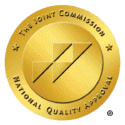
Why Do Some People Get Angry When Drunk?
It’s no secret that alcohol affects different people in different ways. Some people become more outgoing after they have consumed alcohol, while others become more withdrawn. As they continue to drink, some people appear to become happier, while others descend into despair. What causes these changes? For example, why do some people get angry when drunk?
Why Do People Get Angry When They Get Drunk?
Multiple studies have established an association between alcohol intoxication and anger. However, determining the mechanism of this cause-effect relationship has proved to be difficult.
In other words, the data is clear that negative emotions such as anger and irritability often increase when a person drinks – but researchers have not yet conclusively answered the question, “Why do people get angry when drunk?”
One theory is that alcohol doesn’t cause anger, but it exacerbates this emotion in people who are already prone to angry outbursts.
Here’s how this phenomenon is described by the authors of a December 15 article in the Journal of Substance Abuse Treatment: “Anger, alcohol, and aggression relationships have been demonstrated in various laboratory paradigms where those high on trait anger and aggressiveness tend to engage in greater aggression when provoked and under the influence of alcohol.”
Will People Who Get Angry When Drunk Ever Change?
In addition to the question, “Why do people get angry when drunk?” an important related query is “Will someone who gets angry when drunk ever change?”
Considering the research that we mentioned in the previous section, the effort to reduce a person’s propensity for angry outbursts when drinking can hinge on two factors:
- Getting them to end or significantly reduce their alcohol use
- Helping them develop effective anger management strategies
What Do I Do if My Spouse Gets Angry When Drunk?

- First, do what you need to do to protect yourself. If your spouse or partner becomes aggressive when angry and drunk, get somewhere safe until they are no longer intoxicated.
Even if they aren’t aggressive or violent, you can’t reason with them while they’re under the influence of alcohol. Also know that you don’t have to subject yourself to threats or other forms of verbal harassment. You can remove yourself from the situation, just as you would do if you were in physical danger. - When your loved one is sober, talk to them about your concerns. Depending on how alcohol affects them, they may not realize or remember how they act when drunk. This doesn’t excuse their actions, but it may highlight the severity of their alcohol problem.
Emphasize that they need professional treatment for both their alcohol abuse and poor anger management skills. Offer to help them research treatment options and emphasize your love and support. Make it clear they need help for their health and the stability of your relationship.
Types of Treatment for When Alcohol Becomes a Problem
If you don’t like how you act when you’re under the influence of alcohol, the quick answer is to stop drinking. But for many people, this quick answer is far from easy. If you have developed an addiction, it can be extremely painful – and even dangerous – to abruptly end your alcohol use.
With effective professional help, you can eliminate alcohol from your body and make lifestyle changes that support successful recovery.
Depending on how your body and mind have been impacted by alcohol, your path to improved health may include receiving care in one or more of the following programs:
- Detoxification: Alcohol detox is a short-term program that can help you get through withdrawal. Detox professionals may offer both medical and therapeutic support to ease your distress and safeguard your health.
- Inpatient rehab: At the inpatient level of care, you will live at the facility where you are receiving treatment. Inpatient rehab features various therapies, comfortable rooms, nutritious meals, and 24/7 supervision by skilled professionals.
- Outpatient treatment: In an outpatient rehab program, you only need to be at the facility when treatment is in session. This provides ample opportunities to practice your skills in a real-world setting while maintaining structured, personalized clinical care.
Some people step down to outpatient treatment for additional support after completing detox and inpatient rehab. Others forgo detox, or transition directly from detox to outpatient treatment. There is no single perfect course of treatment for alcohol addiction. What’s most important is finding the programming that best meets your specific needs.
Contact Our Los Angeles Rehab Center at Sanctuary Treatment Center
Sanctuary Treatment Center is a respected provider of personalized services for adults in the Los Angeles area whose lives have been disrupted by addictions to alcohol and other drugs. Our dedicated treatment professionals can assess the full scope of your needs, then develop the customized programming that will put you on the path to successful, long-term recovery. When you’re ready to start living the healthier life you deserve, the Sanctuary Treatment Center team is here for you. To learn more or to schedule a free assessment, please visit our Contact Us page or call us today.


